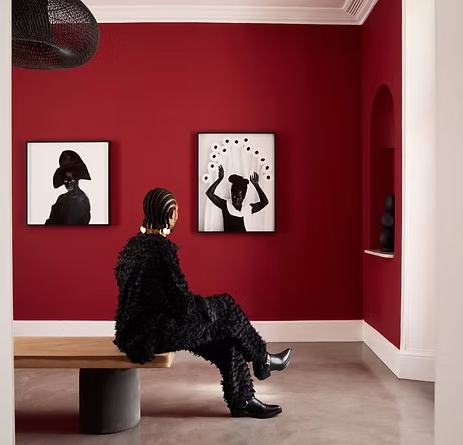Michelle Lissoos and Zulaikha Goolam: Revolutionizing Education with iSchoolAfrica’s Tech-Driven Approach
- BY MUFARO MHARIWA

- Mar 25, 2025
- 4 min read

Established in 2009, iSchoolAfrica was born out of a need to close the widening gap in education. With access to cutting-edge technology in privileged schools and a starkly different reality in under-resourced communities, the organisation set out to change the landscape. Their mission? To ensure that every child, regardless of background or ability, has access to quality, future-ready education.
Michelle Lissoos, Director of iSchoolAfrica, explains, "We saw the huge impact Apple technology had in well-resourced schools while underprivileged schools were left with subpar alternatives. We wanted to change that. Our approach focuses on bringing mobile iPad labs into schools, equipping them with curriculum-based apps, and ensuring teachers receive the training and mentorship needed to maximise the technology's potential."

The success of iSchoolAfrica isn’t just about the devices. As Michelle puts it, "It’s about upskilling, partnerships, and empowerment. It’s about making global best practices relevant to our local context." A key part of their work focuses on inclusivity, ensuring that children with disabilities, who are often further marginalised in underprivileged areas, also have access to transformative education. "Through the iPad, we offer solutions for a wide range of challenges that these learners face," she adds.
In 2025, iSchoolAfrica was recognised with the Zero Project Award for its impact on inclusive education in South Africa. This award highlights the organisation’s Disability and Inclusion Programme, which leverages Apple technology to create accessible learning opportunities. "Being acknowledged by the Zero Project is a huge honour. It underscores the power of technology in transforming education for learners with disabilities," Michelle shares. "But with this recognition also comes responsibility. We must continue striving towards a world with zero barriers for people with disabilities and ensure we harness every available tool to achieve this goal."

Beyond awards, the true impact of iSchoolAfrica is seen in the lives of students who have benefitted from its programmes. Zulaikha, a speech therapist with iSchoolAfrica, sees these victories daily. "A child in a rural village gains access to personalised literacy lessons. A student in hospital keeps up with schoolwork. A non-verbal learner with autism communicates for the first time. These are the moments that define our work. When I ask teachers about the programme’s impact, the most common response is, ‘Learners never want to miss an iPad lesson. They love learning.’ That tells us everything we need to know."
Michelle’s journey into education technology was not a conventional one. "I spent years in the advertising industry in Johannesburg and London," she explains. "I thrived in that environment, but I was looking for a way to apply what I had learned to make a real impact among young people. Education technology ticked all the boxes."
Her passion for inclusivity continues to drive her. "Every child deserves the education that will help them reach their full potential, regardless of their abilities or socio-economic status. When I visit schools across South Africa, I see the potential in young learners' eyes. It’s not about the technology itself; it’s about how it accelerates access to inclusive, quality education."
Advertisement
One of the biggest challenges iSchoolAfrica has faced is changing perceptions about the abilities of learners with disabilities. "People often underestimate what these learners can achieve," Michelle explains. "Through our programme, we demonstrate what is possible with access to technology and inclusive education. One example is our iSchoolAfrica Deaf Developer Programme, which trained deaf youth to become iOS developers."

Looking ahead, iSchoolAfrica is expanding its reach with new initiatives. "We’re excited about our Coding for Inclusion Programme, which brings Apple’s Everyone Can Code curriculum to learners with disabilities," Michelle shares. "We are also exploring how artificial intelligence can help scale equitable education. But more than anything, we are excited about new partners who share our vision and are committed to working with us to make inclusive education a reality."
Zulaikha adds, "Disabled learners in South Africa face multiple challenges, and access to quality education is one of the biggest. Our Disability Inclusion Programme takes Apple technology into under-resourced areas, allowing learners to access personalised learning paths suited to their needs. Many of these students have never had the opportunity to use advanced technology, but when we introduce them to these tools, their world opens up."
Advertisement
The programme does more than just improve classroom experiences—it increases employability opportunities for disabled learners. "These students are often underestimated," Zulaikha explains. "But when they gain access to technology, they prove what they are capable of. iSchoolAfrica is breaking down barriers and reshaping how communities view disability."
As a speech therapist, Zulaikha has seen first-hand how iSchoolAfrica supports the therapy needs of disabled learners. "In speech therapy, communication and literacy development are key focus areas. Many non-verbal learners previously relied on printed picture cards to communicate. But with iPads, they have access to high-tech AAC (Augmentative and Alternative Communication) devices for the first time. These tools allow them to express themselves in ways they never could before."
For learners with dyslexia, iPads provide built-in features like Speak Screen, Dictation, and Highlighted Content, enabling them to participate fully in classroom activities. "These features eliminate the exclusion many students with learning barriers experience. They now have the chance to perform at their full potential."
There have been countless moments where children have broken through communication barriers thanks to iSchoolAfrica’s programmes. "We have seen an autistic learner write his name for the first time using an Apple Pencil on an iPad," Zulaikha shares.
Advertisement
"A blind-autistic learner played the piano and sent a text message using his voice for the first time. Parents have had their first conversations with their children through AAC devices."
Each breakthrough is a testament to the power of technology in education. "Once you witness what inclusive technology can do, you understand the true impact of the iSchoolAfrica Disability Inclusion Programme," Zulaikha says. "It’s about empowerment, opportunity, and giving every learner the tools they need to succeed."




























































